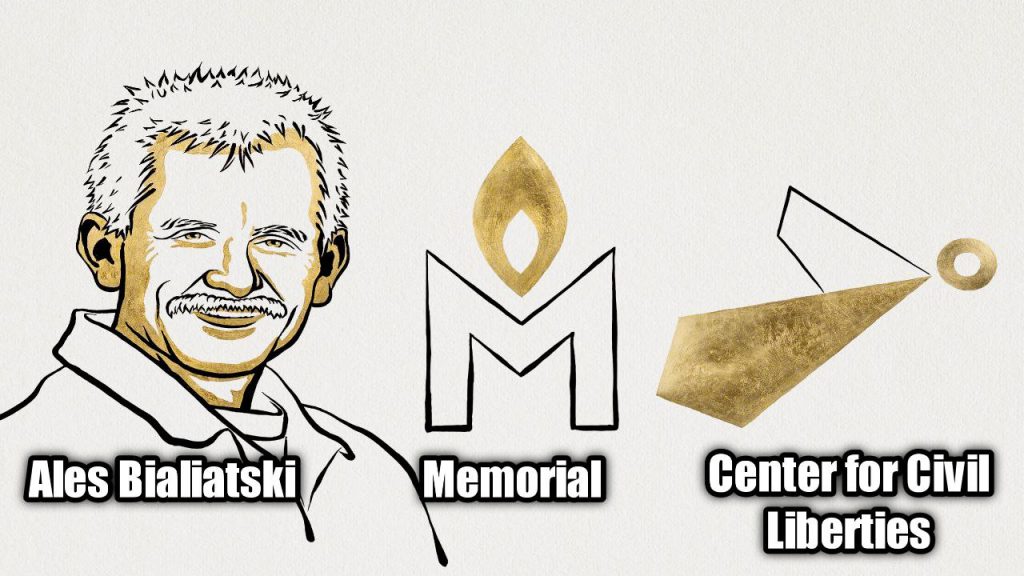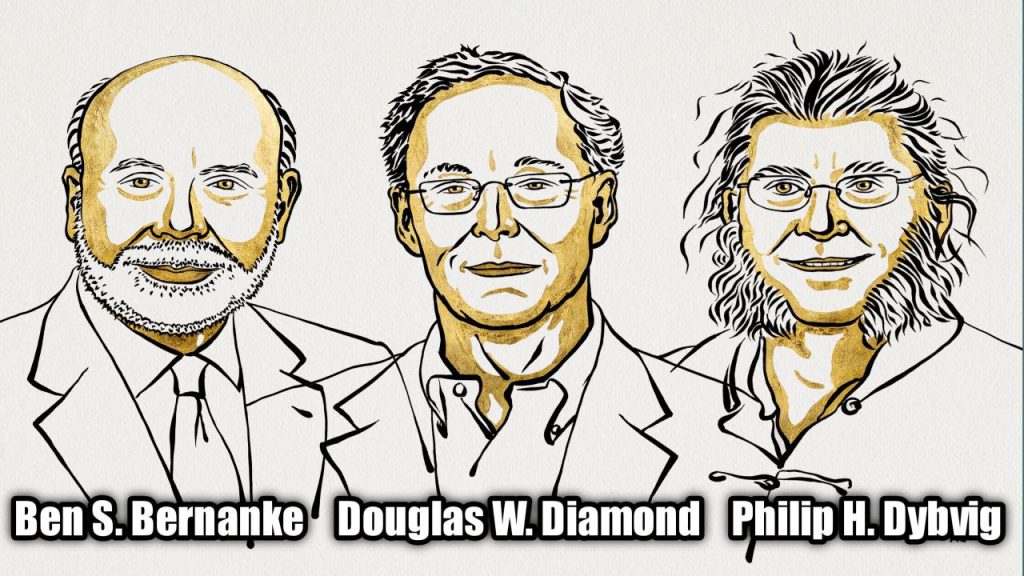Alfred Nobel was a Swedish inventor, scientist, and entrepreneur most famously known for the invention of dynamite. He died on 10 December 1896 at the age of 63 years. In his testament of 1895, he bequeathed all of his remaining realizable assets to be used to establish five prizes which later became “Nobel Prizes”.
Nevertheless, the finalists will receive their medal of honor and certificates (along with 11 million Swedish kronor, or $900,001) in Stockholm in Late November for the first time since the beginning of the 2020 Covid-19 pandemic. The previous two years’ winners have also been invited to participate.
Peace

Alfred Nobel was involved in the peace movement and displayed significant interest in social issues. Bertha von Suttner influenced his views on peace, she was also a driving force in the international peace movement in Europe and was later awarded the Nobel Peace Prize (1st woman winner). Nobel mentioned Peace as the fifth and final prize area in his will.
This year Nobel Peace Prize was awarded to Ales Bialiatski, a human rights advocate from Belarus, the Ukrainian human rights group Center for Civil Liberties, and the Russian human rights group Memorial. They validate and document war crimes, the abuse of power, and human rights violations. For many years, they promoted and were vocal about the right to criticize authority and secure the citizen’s fundamental rights.
Ales Bialiatski is a peace activist who founded the Belarus human rights group Viasna in 1997 in response to authoritarian President Alexander Lukashenko. He is still being detained without trial but has not given up his struggle for democracy and human rights in Belarus.
Memorial, the 3rd beneficiary, was founded in Russia following the collapse of the Soviet Union to reveal abuse and unfairness. In November 2021, a Russian jury shut it down for breaching Russia’s “foreign agent” legislation.
Economics

The economics award, the highest honor in the field, is not, technically, a Nobel Prize because it wasn’t among the original categories that Alfred Nobel set out in his will in 1895.
Sveriges Riksbank (Sweden’s central bank) established the Economic Sciences Prize in Memory of Alfred Nobel in 1968. The award is constituted based on a donation from Sveriges Riksbank on the occasion of the bank’s 300th anniversary in 1968.
This year’s laureates in economic sciences are Ben Bernanke, Philip Dybvig, and Douglas Diamond, who have significantly improved our understanding of the role of banks in the economy, financial regulation, credit crisis, and how banking crisis should be managed particularly during the financial crisis. Their findings have enhanced our ability to avoid both severe crises and costly bailouts.
Prize Money
Alfred Nobel left most of his estate, a fortune of Swedish Kronor of more than SEK 31 million (presently approx. SEK 1,702 million) to be transformed into a fund and invested in “secure securities.” The income generated from the investments was to be distributed annually in the form of prizes to those who have imparted the maximum benefit to humanity during the previous year.
The prize amount for 2022 is set at Swedish kronor (SEK) 10.0 million or $900,000 per full Nobel Prize.
Why Are The Noble Awardees Called Laureates?
The word “laureate” refers to being symbolized by the laurel wreath. As per Greek mythology, the god Apollo is depicted wearing a laurel wreath on his head. It is a round crown made of branches and leaves of the bay laurel. In Ancient Greece, laurel wreaths were presented to winners of both athletic competitions and poetic meets as a sign of honor.
Interesting Facts:
- The Nobel Prize derives its name from Alfred Nobel, a Swedish scientist, and entrepreneur.
- Alfred Nobel holds 355 different patents by his name, including dynamite.
- Henry Dunant (Switzerland) and Frédéric Passy (France) were awarded the first Nobel Peace Prize in 1901.
- The youngest Nobel Laureate is Malala Yousafzai who got the Peace Prize in 2014 at the age of just 17 years.
- The oldest recipient of this prize is John B. Goodenough, at age of 97 years in Chemistry 2019.
- Marie Curie is the 1st woman to be awarded and the only woman who has been honored twice, the 1903 Nobel Prize in Physics and the 1911 Nobel Prize in Chemistry.
- Mother Teresa won the Noble Peace Prize in 1979 for extending her help to suffering humanity.
- Just 61 women in total have been awarded the Nobel Prize between 1901 and 2022.
- The only Nobel Laureate who has been awarded the Nobel Prize in Chemistry twice is Frederick Sanger, in 1958 and 1980.
- The only Nobel Laureate who was awarded the Nobel Prize in Physics twice is John Bardeen in 1956 and 1972.
- The Peace prize is the only prize presented in Oslo, Norway (Not in Sweden) in the presence of the King of Norway, on December 10, the death anniversary of Alfred Nobel.
- The first Indian to receive the Nobel Prize was Rabindra Nath Tagore and so far, 9 Indians/people of Indian origin have received Nobel Prize.
- Leon Lederman, a Nobel Prize winner for his co-discovery of the muon neutrino in 1988, sold his prize medal to cover medical expenses for a whopping $765,000.
- James Watson won the 1962 Nobel Prize for the discovery of the DNA’s double helix structure and auctioned off his prize for $4.7 million in 2014, though the Russian billionaire who bought it returned it to him a little while later.
- Two Nobel Prize laureates who declined the prize: Jean-Paul Sartre in 1964 for Literature and Le Duc Tho, awarded the 1973 Nobel Peace Prize.
- Only the International Committee of the Red Cross is a 3-time recipient of the Noble Peace prize – 1917,1944, and 1963
- United States has won the highest number of Nobel Prizes with 400, followed by the UK with 138 between 1901 and 2021.
- For five times, Mahatma Gandhi was nominated for the Nobel Prize (but not awarded).









